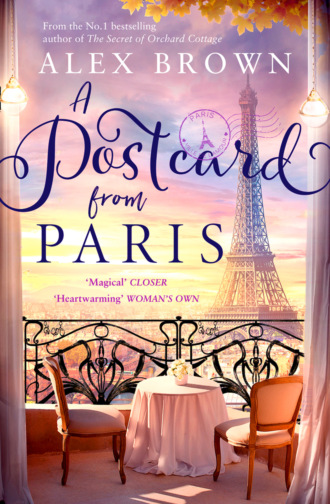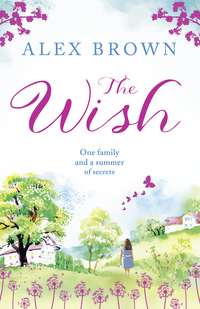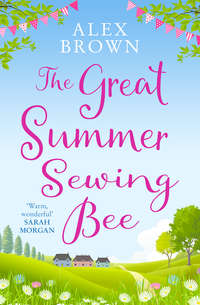
Полная версия
A Postcard from Paris

A POSTCARD FROM PARIS
Alex Brown

Copyright
HarperCollinsPublishers Ltd
The News Building
1 London Bridge Street
London SE1 9GF
www.harpercollins.co.uk
First published in Great Britain by HarperCollinsPublishers 2021
Copyright © Alexandra Brown 2021
Cover design by Andrew Davis © HarperCollinsPublishers Ltd 2021
Cover photographs © Shutterstock.com
Alexandra Brown asserts the moral right to be identified as the author of this work.
A catalogue copy of this book is available from the British Library.
This novel is entirely a work of fiction. The names, characters and incidents portrayed in it are the work of the author’s imagination. Any resemblance to actual persons, living or dead, events or localities is entirely coincidental.
All rights reserved under International and Pan-American Copyright Conventions. By payment of the required fees, you have been granted the non-exclusive, non-transferable right to access and read the text of this e-book on screen. No part of this text may be reproduced, transmitted, down-loaded, decompiled, reverse engineered, or stored in or introduced into any information storage and retrieval system, in any form or by any means, whether electronic or mechanical, now known or hereinafter invented, without the express written permission of HarperCollins.
Source ISBN: 9780008421984
Ebook Edition © April 2021 ISBN: 9780008421991
Version: 2021-04-01
Praise for Alex Brown
‘A warm and witty novel’
Hello
‘Adorable, comical and magical, this is a festive delight’
Closer
‘We love it!’
Now
‘Defies the chick lit cliché’
Heat
‘A lovely book to curl up and unwind with, as sweet and charming as homemade apple pie’
Milly Johnson
‘Warm, wonderful characters – a really lovely read’
Sarah Morgan
‘Poignant and moving, the cleverly entwined stories kept me turning the pages’
Trisha Ashley
‘Charming, witty, heartwarming and full of absorbing characters’
Carmel Harrington
‘Very lovely’
Jill Mansell
‘An intriguing and heart-warming story you will love’
Katie Fforde
‘Warm, emotional … a gorgeous read’
Cathy Bramley
‘Warm and cosy’
Lucy Diamond
‘Deliciously delightful from start to finish, sprinkled with magic and full of heart’
Miranda Dickinson
‘A warm, witty, loveable read with plenty of sparkle and charm’
Rowan Coleman
‘A sparkling debut … funny, romantic and utterly charming. Devour in one sitting like a delicious, indulgent cupcake then go back and start again’
Sasha Wagstaff
‘From the moment I read the first page of Alex’s book, I knew I was being allowed to see something special’
Chrissie Manby
‘I love Alex’s books, so warm and even make me want to live in the country’
Sarra Manning, editor of Red Magazine
‘A lovely, warm-hearted and compassionate tale’
LoveReading
‘This was genuinely one of the most special books I’ve read this year’
Bookish Escapes
Dedication
For Caroline, Tracey, and Rachel for continuously lifting me and being the best friends I could have. I’m truly grateful to have found you xxx
Epigraph
‘Friendships between women, as any woman will tell you, are built of a thousand small kindnesses … swapped back and forth and over again’
Michelle Obama
Contents
Cover
Title Page
Copyright
Praise for Alex Brown
Dedication
Epigraph
Chapter 1
Chapter 2
Chapter 3
Chapter 4
Chapter 5
Chapter 6
Chapter 7
Chapter 8
Chapter 9
Chapter 10
Chapter 11
Chapter 12
Chapter 13
Chapter 14
Chapter 15
Chapter 16
Chapter 17
Chapter 18
Chapter 19
Chapter 20
Chapter 21
Chapter 22
Chapter 23
Chapter 24
Chapter 25
Epilogue
Dear Reader …
Acknowledgements
Read on for two of Alex’s favourite French recipes
Read on for an extract of A Postcard from Italy
Keep Reading …
About the Author
Also by Alex Brown
About the Publisher
1
Tindledale, in rural England, 1916
Beatrice Crawford craved adventure. Yearning to escape the confines of her provincial young ladyhood and find her purpose, to be a positive influence in the world. A woman of substance, just like Lady Dorothy Fields, the inimitable, flame-haired woman who had ignited the dimly lit village hall earlier this evening with a very rousing speech. Beatrice had listened intently as Lady Dorothy had talked about her nursing work with the Voluntary Aid Detachment, or VAD, carrying out her patriotic duty to look after the brave soldiers fighting in fields far away for King and Country in the Great War.
After buttoning up her cotton nightie, Beatrice sat at her dressing table and brushed out her ebony curls then, securing them away from her face with a tortoiseshell clip, she pressed cold cream over her cheeks and neck, sweeping down and across her collar bones. Going over in her mind the events of such an extraordinary evening, she recalled with wonder the atmosphere in the village hall. It had been quite thrilling. An audience of young women just like her, suffragettes too, with little tricolour brooches pinned to their lapels, sat shoulder-to-shoulder, all united in their desire to do so much more for the war effort than endure a stifling life made up of endless tedious occupations such as light domestic work or embroidering samplers in silent drawing rooms. Her younger companion, Queenie, the housekeeper’s niece, who was already doing her bit by working in an ammunitions factory in the nearby town of Market Briar, had almost missed out on hearing Lady Dorothy’s speech. Queenie had arrived late and in a fluster, discreetly brushing a sheen of fine raindrops from her wool beret and gloves, whispering a grateful, ‘Thank you, Trixie,’ before sliding onto the chair that Beatrice had saved for her at the end of the row. Exchanging a clandestine glance, Beatrice had pressed her friend’s hand in reply, both of them knowing and secretly delighting in their small act of defiance. For Beatrice’s stepmother, Iris, had forbidden Queenie from using ‘Trixie’ as a suitable pet name for her stepdaughter, citing it ‘undignified, and quite common!’ But Beatrice liked being Trixie: it made her feel more alive, jolly and without constraint, and so the two friends had continued with it whenever Iris was out of earshot.
Beatrice and Queenie had forged an unlikely friendship five years ago when Iris had insisted that the then 13-year-old Beatrice ‘must be perfectly fluent in at least two languages if she were to be a refined debutante and catch a suitable husband.’ Eight-year-old Queenie, known to be a quick-witted and fast-learning young girl, with a tumble of auburn curls and sparkling, impish green eyes, was brought in from the village each day to be taught French and High German, in order that Beatrice might practise her own conversational skills. As for Beatrice’s rudimentary French and German writing skills, they had been deemed beyond hope and were to be forgotten about forthwith. Even though Beatrice’s stepmother was French, she was far too engaged in a hectic social life – which frequently took her to glamorous parties in London, Paris, Monte Carlo and beyond – to idle away her time on academia, especially when, according to Iris, Beatrice hadn’t ‘shown enough flair in her younger years’. Iris had also declared that revision was a tedious waste of time, and that Beatrice should show humility and recompense for her shortcomings by learning alongside an uneducated and much younger village girl, who would most likely pick it all up in half the time that it had taken Beatrice. ‘So that ought to keep you on your toes!’
So, together with her French and German conversational skills, thanks to her insistent stepmother and Swiss governess, Miss Paulette, there were now only ten lectures and ten lessons in first aid and nursing standing between Beatrice and her ambition to help the soldiers fighting on the front line in France. Not that it was imperative to have language skills, but Beatrice thought it might give her a little something extra to offer, and Lady Dorothy had explained that it wasn’t only English-speaking soldiers who required nursing. There were Frenchmen too. Some German soldiers, prisoners of war, as well. Of course, she would need practical first-aid training. A hospital in London perhaps, that’s what Lady Dorothy had recommended, to get a foot in the door and to show her mettle. And they really were rather keen to recruit volunteers.
Drawing her knees up to her chest and placing her slippered feet on the edge of the velvet cushioned chair, Beatrice wrapped her arms around her legs and hugged the feeling of possibility into her, for she could see a way forward now. It was as if a light had been switched on deep within her, sparking a frisson of hope that she felt barely able to contain. Not that the bleak battlefields of France were a cause for elation. Certainly not. No, it was very much more than that. She had to do something. The newspapers were full of lists. The names of soldiers killed in the trenches. Pages and pages of men, some only mere boys. Thousands on the very first day of the war in 1914 and it had been relentless ever since. Fathers. Sons. Cousins. Uncles. Nephews. Her own dear brother, Edward, having enlisted at the start of the war, had mercifully been missing from the lists so far. But for how much longer? Beatrice carried a perpetual sense of foreboding that seemed impossible to shake off. Although, for the first time in her life, she felt that she also had an opportunity, a sense of purpose.
Of course, Father would protest, preferring she marry Clement Forsyth, the odious son of his banker in London, but how could she when her heart was with another? A secret love. Because Bobby worked in the stables, mucking out and tending to the horses, and so would never be suitable husband material as far as Father was concerned. Beatrice’s heart had almost broken in two when Bobby had gone away to fight for his country, and not a moment went by when she didn’t think of him, wrapping an imaginary shield of safety around his beautiful body so he would return to her arms once more. The only comfort being that Bobby and Edward were together in the same PALS battalion. Queenie’s older brother, Stanley, too, along with many of the other men from the village, with their camaraderie to keep their spirits up until they could return home. Beatrice treasured the photograph of Bobby that she kept hidden inside her diary, alongside the pages where she had written about her endless love for him.
Instead there was Clement, who had pursued Beatrice from first seeing her at 17 years old in the exquisite gown of white satin with lace trim that Iris had shipped over from Paris especially for the Queen Charlotte’s Ball, the pinnacle event of the debutante season. He had been relentless from then on, constantly calling on Beatrice at home and always appearing by her side at society events – Royal Ascot, Henley Regatta, King George’s coronation gala, not to mention all the other balls at various grand estates and castles that she had been wheeled out to by her overbearing stepmother. And woe betide if another ‘debs’ delight’ so much as glanced in Beatrice’s direction, for Clement had become insufferable in warning them off with one of his supercilious glares and a territorial hand on her arm. Fortunately, all talk of marriage had been suspended for now since conscription had started on 2 March and Clement had reluctantly taken a commission in the army. And Beatrice’s stepmother would protest even more to her going to France, branding her desire to volunteer as a nonsensical notion that should be stopped at once, of that Beatrice was certain.
‘It’s not becoming for a young lady of your standing to take up such menial work. Mopping floors and changing soiled bed linen. Whatever next! Your poor father, having to shoulder such embarrassment from his own flesh and blood is quite unforgivable. And if you refuse to give up such whimsical ideas and continue to rebuff a perfectly suitable marriage proposition, then I fear you will become too old and contrary for any respectable gentleman to consider taking as a wife. You will spend the rest of your days as a spinster!’ is what Iris had spluttered in outrage over supper one evening when Beatrice had first mooted the possibility, some months ago, of her helping out at the Red Cross auxiliary hospital set up in the Stanway Rectory on the outskirts of the village. Beatrice remembered the evening vividly, because later, in the privacy of her bedroom suite, she had written down her stepmother’s hurtful words in the diary which she kept locked in a burr-walnut wood writing slope that had belonged to her darling mother, and now to her. Spinster! Beatrice had even underlined the word several times and had then spent a great deal of time pondering on whether being a spinster might not be the curse that Iris perceived it to be. Especially if she couldn’t be with Bobby and the alternative was to be the reluctant wife of Clement Forsyth.
Beatrice was only 18 years old and a young lady should be 23 to be accepted for an overseas voluntary nursing post, Lady Dorothy had explained. But with her nineteenth birthday next month, Beatrice was determined to find a way around the rule and would increase her age if required to do so. She wasn’t usually one for lying but if that is what it took, then so be it. And the other women in the hall had spoken about this after the meeting with such nonchalance, declaring it impolite to ask a lady her age. It was a minor detail to be disregarded for the greater good of the country. So there really was no time to waste. Beatrice was resolute. With her whole life ahead of her, which was far too precious to fritter away in a suitable but nonetheless loveless marriage, she wondered about romance. And love. True love, like the love she had with Bobby and the love that her mother had shared with her father before her life had been cruelly cut short.
Beatrice had only been 4 years old when it had happened, Edward 7 and away at boarding school. Their mother had died giving birth to another daughter who hadn’t survived either, and from then on Beatrice had felt terribly alone, with long hours spent gazing from her bedroom window, hoping to find a fragment of comfort in the view, out and across the undulating, sun-drenched fields and faraway into the distance, past the wooden water mill that powered through the river, over and over, its melodic rhythm like balm to her grieving young soul. Beatrice had seen a rainbow one time and wondered if over the glistening arc of the petroleum-coloured streaks was where heaven lay, and if she might go there to be reunited with her beautiful mother.
She missed her dreadfully. Baking and sketching together, Beatrice had adored sharing these activities with her mother, along with perfume making and flower pressing, where they would wander through the fields to pick wild flowers and mix them into a scented potion, keeping the brightest blooms to slot into the press for drying and applying to scrapbooks. Beatrice still had the scrapbooks but couldn’t bear to look through them after her mother had died.
As time had ticked on and Beatrice’s memory of her mother, radiant and enthused with the sweet scent of rose perfume, always with a smile and a kiss for her adoring husband, had faded, Beatrice had grown up and managed to forge a slice of happiness for herself. Immersing herself in her diary-writing and reading books, Little Women being her favourite. Beatrice had drawn strength from the vibrant and strident March sisters, developing a passion for gaiety and curiosity about the joie de vivre that Miss Paulette had spoken of in those French lessons she’d had as a child.
Where was all of that now? Beatrice knew there was a shortage of suitable men, thanks to this dreadful war; not that she wanted another man when her true love was Bobby, but she also knew her own mind and that she would most likely go mad if she didn’t take this opportunity to escape. If she were to remain a spinster for the rest of her life then so be it, but at least she would be in charge of steering her own destiny. There really was no other option, for surely she would suffocate into oblivion if she were to end up leading a very insignificant life as the demure wife of a bombastic banker. Besides, there were only so many samplers one could possibly endure embroidering day after day, with just piano recitals and letter writing to break the monotony. She needed more. Much more. And she had very much more to give in return.
Yes, the decision was made. Beatrice was going to join the VAD. She would volunteer at the rectory hospital first, progress on to a London hospital while completing her training, and then she would broaden her horizons further and travel to France where she would make beds, change dressings and bathe injured soldiers. And she would feel honoured to do so. She would wear a blue uniform with a pristine white apron and linen cap secured with a safety pin at the nape of her neck and feel extremely efficient, knowing that her work there was worthwhile and of the utmost importance. She nodded her head as if to underline the biggest decision she had ever made in her life.
Lady Dorothy had captured Beatrice’s imagination with photographs of herself in her own uniform. In one photograph, Lady Dorothy was even wearing khaki trousers tucked inside long leather boots, just like a man. In another, she was driving a motor ambulance and giving the photographer a rousing wave from the open window. And in that moment, Beatrice knew that she would very much like to have this experience too. She could already drive, having driven Father’s motor car in the grounds around the house. Sidney, the gamekeeper, had shown her the ropes, and she had mastered the steering wheel and brake in no time at all. So, it was settled, Beatrice was to become a woman of substance and make a positive difference at last … just as soon as she had Father and Iris onboard with her marvellous escape plan.
2
London, England, 2019
Annie Lovell momentarily closed her eyes and resisted a sigh as she listened to her daughter, 22-year-old Phoebe, lecture her on FaceTime.
‘Oh Mum, why didn’t you wait? I would have helped you pack the boxes and put them up into the loft. You only had to ask … It’s really no trouble at all.’
Silence followed.
‘Mum! Are you listening?’ Phoebe barked, startling Annie and almost making her spill the generous measure of rosé from the wine glass in her hand. ‘Are you OK? You seem distracted. Did you bump your head in the fall?’
‘No, darling. Honestly, I’m fine,’ Annie said, now wishing she hadn’t mentioned falling off the loft ladder.
‘And why are you drinking? At this time of the day! It’s only six p.m. You know, it’s really not a good idea to chug down loads of alcohol every evening. I listened to a podcast during my run this morning and learnt all about the perils of midweek drinking. How middle-aged people, women predominantly, are putting away a whole bottle a night, easily. And then not even realizing when alcohol becomes an issue for them—’
‘Sweetheart! Alcohol is not an issue for me,’ Annie jumped in as Phoebe gave herself a smidgen of a second to draw breath, ‘plus, I am not middle-aged. I’ve only just had my forty-ninth birthday. People live to a hundred these days, easily, so I have a good year or so to go before I’m technically middle-aged and you need to worry about me. Not that you ever will need to – worry, that is,’ she added gently, pushing a chunk of blonde hair behind an ear and surreptitiously taking another quick sip of the wine off camera. She then placed the glass on the coffee table beside her and carefully angled the laptop away from the wine box that her best friend, Beth, had sent to her.
‘For restorative purposes, darling. Put your feet up and take a load off that poor foot of yours,’ Beth had instructed when Annie had called her to say thank you for the luxury care package consisting of the wine box, a gloriously scented candle, a box of Annie’s favourite chocolate truffles, a stack of glossy home interiors magazines and a Netflix gift card, all wrapped up in pink tissue paper inside a little wicker hamper with leather straps.
Beth had always been kind and thoughtful, and always supportive, especially during the tough times. And there had been a few. From when Annie’s ex-husband, Mark, had left back when the children were very young and her heart had broken. Shattered beyond repair. It had been an extremely difficult time for Annie after she had put aside her own career and travel aspirations to marry Mark when they discovered she was pregnant with Phoebe only a year after leaving university. After the wedding, Annie had focused on looking after their young family and home, whereas Mark had carried on pretty much as he always had, building his career and going out with his mates and away for golfing weekends. But he had always come home, and had been loving and attentive when he was there. Until one day when he didn’t come home! Then, ignoring her calls and messages for a further two days, until Annie, in desperation, had started calling the local hospitals and eventually his parents, Mark had eventually showed himself to be the coward he was by sending her an email explaining that he wasn’t actually ready to settle down and so was moving in with a younger woman he had met at work. It took him a week to actually talk face to face with Annie and explain that Carly didn’t have children and loved travelling and going to festivals. A free spirit. Much like Annie had been before she met Mark. And this had made him realize that he wasn’t actually cut out for family life after all.
It had been Beth who had got Annie through the harrowing years that followed. A single mum with shattered dreams that had sapped all her confidence. Various lukewarm relationships had followed. Then there had been that time when Annie had found an ominous lump in her left breast, which, after the biopsy, had turned out to be nothing to worry about at all, but she would have crumbled for sure if she hadn’t had Beth to wrap her into one of her trademark big bear hugs. And Annie had always been there for Beth too, when her wonderful, kind-hearted dad had died, through to accompanying her to the various gigs and auditions she had done over the years to forge her singing career. Which was why it was such a wrench now that Beth had left for Australia.
Annie knew she mustn’t begrudge her best friend the once-in-a-lifetime opportunity of a twelve-month residency singing soprano at the Sydney Opera House – it had been Beth’s dream since childhood – but Annie was already missing her so much. Talking and texting on the phone just wasn’t the same. With the time difference, there never seemed to be enough hours to gossip and practically laugh themselves into a hernia at a shared joke or a hilarious memory from their joint history. Just like they always had done, almost every day for near on forty years or so. And the last time Beth had tried to FaceTime Annie, the connection had been so slow and terrible that she had disconnected the call after just a few seconds, leaving Annie feeling extremely deflated. Apart from elderly Joanie, who lived next door, Beth was Annie’s only close friend, and Phoebe’s godmother too.






